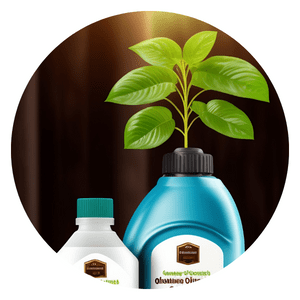The Best Gardening Methods to Grow Organic Blueberries
Blueberries are not only delicious and nutritious, but they are also a popular choice for home gardeners looking to grow their own organic produce.
Whether you have a spacious backyard or limited space on your balcony, growing organic blueberries can be a rewarding and satisfying endeavor.
However, achieving optimal growth and maximum yield requires careful planning and knowledge of the best methods to cultivate these vibrant berries in an organic manner.
In this article, we will explore the most effective techniques and practices to grow organic blueberries successfully.
From selecting the right variety suited for your climate to preparing the soil with nutrient-rich amendments, we will delve into every aspect of creating an ideal environment for these luscious fruits to thrive naturally.

Blueberries Gardening Methods Menu
Traditional Soil Garden
Another method to grow organic blueberries is by cultivating them in a traditional soil garden. This method involves planting blueberry bushes directly in well-draining, acidic soil in your garden.
It is essential to choose a location that receives full sun for at least six hours a day.
To ensure optimal growth, it is advisable to amend the soil with organic matter such as peat moss or compost. These materials help improve the soil’s texture, drainage, and fertility while increasing its acidity level, which blueberry plants thrive in.
Prior to planting, it is recommended to prepare the soil by removing any weeds and loosening it with a garden fork or tiller.
Once ready, dig a hole slightly larger than the root ball of the blueberry plant and gently place it inside.
Backfill the hole with amended soil and lightly firm it around the roots.
It is crucial not to bury the crown of the plant too deep as this can lead to poor growth or even death of your blueberry bushes.
Finally, thoroughly water each plant after planting and continue watering regularly throughout their growing season while keeping an eye out for any signs of distress or nutrient deficiencies that may require further attention.
Raised Beds
Raised beds are a popular and effective method for growing blueberries organically.
By creating raised beds filled with a mix of acidic soil, organic compost, and peat moss, gardeners can provide the optimal growing conditions for these delicious berries.
The acidic soil helps to mimic the natural environment of blueberries, which thrive in acidic conditions.
Additionally, the organic compost provides essential nutrients for healthy growth and the peat moss helps retain moisture in the soil.
Creating raised beds also offers other benefits for blueberry plants.
The elevated position allows for better drainage, preventing waterlogging that can be detrimental to the roots. It also helps to keep weeds at bay.
Blueberry plants have shallow root systems that can easily be overwhelmed by competing weeds, so having them in raised beds reduces this issue significantly.
Furthermore, with raised beds, it becomes easier to control pests and diseases as they are less likely to spread from neighboring plants.
Overall, utilizing raised beds filled with an appropriate mixture of acidic soil, organic compost, and peat moss is an excellent way to ensure successful organic blueberry cultivation while providing optimal growing conditions for these delectable fruits.
Container Gardening
One of the best methods to grow organic blueberries is through container gardening.
By using large containers filled with acidic potting mix, you can create the ideal growing conditions for these delicious berries.
The advantage of container gardening is that it allows for mobility, meaning you can move the plants around your garden or patio to find the perfect spot with optimal sunlight and temperature.
In addition to mobility, container gardening also enables you to have better control over the soil composition.
Blueberries thrive in acidic soil with a pH level between 4.5 and 5.5.
By using an acidic potting mix specifically designed for blueberries or amending regular potting mix with peat moss and pine bark, you can ensure that your plants receive the right nutrients they need to grow and produce healthy fruits.
When choosing containers for your blueberry plants, opt for ones that are at least 18 inches deep and wide to accommodate their root system.
Make sure the containers have drainage holes at the bottom to prevent waterlogging, as excessive moisture can lead to root rot.
With proper care and attention, container-grown blueberries can be just as productive as those grown in traditional garden beds while offering greater flexibility in terms of location and soil management.
In soil enriched with love's embrace, Beneath the sun's warm, radiant grace, Organic blueberries bloom and thrive, With methods pure, we keep alive. Mulch with compost, their roots adore, Water deeply, but not too more. Prune them gently, attention pure, And in return, bountiful harvests endure.
Chappy The Gardener
Hydroponics
Hydroponics is a popular method for growing blueberries organically, providing a controlled environment that optimizes plant growth and yields.
When setting up a hydroponic system specifically designed for blueberries, several factors need to be considered.
First and foremost, the nutrient solution must meet the specific needs of blueberry plants.
Blueberries are acid-loving plants and require an acidic pH level between 4.5 and 5.5 for optimal growth. Therefore, it is crucial to adjust the pH of the nutrient solution accordingly.
In addition to adjusting the pH level, it is essential to provide blueberry plants with a nutrient-rich solution that fulfills their specific nutritional requirements.
Blueberries thrive on high levels of nitrogen during their early growth stages but require less nitrogen as they mature.
Phosphorus and potassium are also crucial elements needed by blueberry plants at different stages of their growth cycle.
Monitoring and maintaining proper nutrient levels in the hydroponic system are vital to ensure healthy plant development and maximize fruit production.
Furthermore, when designing a hydroponic system for blueberries, consideration should be given to other environmental factors such as temperature and humidity control.
Blueberries prefer cooler temperatures ranging from 60-75°F (15-24°C) during the day while requiring slightly lower temperatures at night.
Maintaining optimum humidity levels between 50-70% is also important for preventing diseases commonly associated with high humidity conditions.
Aquaponics
One of the most effective methods to grow organic blueberries is through aquaponics, where a symbiotic relationship is established between fish and plants.
Aquaponics is a system that combines hydroponics (growing plants in water) with aquaculture (raising fish).
In this system, the waste produced by the fish serves as a nutrient-rich fertilizer for the blueberry plants.
By integrating blueberries into an aquaponic system, farmers can create a self-sustaining ecosystem that requires minimal external inputs.
The fish waste is broken down by beneficial bacteria into nitrates, which are then absorbed by the plants as nutrients.
As the blueberry plants take up these nutrients, they also purify the water for the fish. This closed-loop system not only reduces water consumption but also eliminates the need for synthetic fertilizers and pesticides.
Furthermore, growing blueberries in an aquaponic system can provide optimal conditions for their growth.
Blueberries thrive in slightly acidic soil with high organic matter content and consistent moisture levels – all of which can be easily achieved in an aquaponic setup.
Greenhouse
One of the best methods to grow organic blueberries is by creating a controlled environment in a greenhouse.
By doing so, you can ensure that the blueberry plants receive consistent and optimal conditions for growth throughout the year, regardless of the outside climate.
Greenhouses provide protection from extreme temperatures, frost, and harsh weather conditions that can hinder blueberry plant growth.
In a greenhouse, you have the ability to monitor and control important factors such as temperature, humidity, and light levels.
Blueberries thrive in specific temperature ranges, usually between 60-70 degrees Fahrenheit during the day and slightly cooler at night.
With a greenhouse, you can maintain these ideal conditions consistently.
Humidity is another critical factor for blueberry growth as they prefer moderate humidity levels between 40-60%.
Greenhouses allow you to regulate humidity levels by using misters or humidifiers when necessary.
Light plays a crucial role in photosynthesis and overall plant health.
Greenhouse structures are designed to maximize sunlight exposure while also providing shade during intense periods of sunlight. This ensures that blueberry plants receive an optimal amount of light throughout the day for efficient energy production.
By utilizing a greenhouse to create a controlled environment for growing blueberries year-round, organic farmers can achieve more reliable yields with higher-quality produce while reducing their dependence on external climatic factors.
Vertical Gardening
One effective method to grow organic blueberries is through vertical gardening.
By utilizing trellises or vertical structures, you can optimize space and create a more efficient growing environment for the blueberry plants. This method allows you to grow blueberries in areas with limited ground space, such as small gardens or balconies.
Vertical gardening also promotes better air circulation and sunlight exposure for the blueberry plants.
With a trellis system, the plants are lifted off the ground, reducing the risk of diseases caused by poor air circulation.
The increased airflow helps prevent fungal infections and encourages healthier plant growth.
Moreover, vertical gardening allows for better sunlight exposure since the plants can be positioned strategically to receive maximum sunlight throughout the day.
Blueberries thrive in full sun conditions, so ensuring they receive adequate light is crucial for their growth and fruit production.
In conclusion, by implementing vertical gardening techniques such as utilizing trellises or vertical structures for growing blueberries, you can maximize space utilization while also providing better air circulation and sunlight exposure for healthier plant growth and higher yields of organic blueberries.
Companion Planting
Another effective method to grow organic blueberries is through companion planting.
Pairing blueberries with companion plants such as rhododendrons, azaleas, or ferns can create a favorable microclimate for the blueberry bushes. These companion plants provide shade and help retain moisture in the soil, which is essential for blueberry growth.
Additionally, these plants can help deter pests that are harmful to blueberries, enhancing pest control naturally.
Rhododendrons and azaleas are particularly beneficial companions for blueberries due to their need for similar acidic soil conditions.
By planting them together, they can share nutrients and promote healthy growth in each other.
Moreover, these flowering shrubs attract pollinators like bees and butterflies that will also benefit the blueberry bushes by aiding in pollination.
Ferns are another excellent choice as a companion plant for blueberries because they provide shade and help maintain moisture levels in the soil.
The dense foliage of ferns acts as a natural mulch that helps prevent weed growth around the base of the blueberry bushes. This reduces competition for nutrients and water while creating an ideal environment for the growth of both plants.
By incorporating companion plants like rhododendrons, azaleas, or ferns into your organic blueberry garden, you can create a harmonious ecosystem that promotes healthy growth and enhances pest control naturally.
Mulching
One of the best methods to grow organic blueberries is to apply organic mulch around the plants.
Mulching provides several benefits for blueberry plants, including maintaining moisture levels in the soil.
Blueberries have shallow roots that are sensitive to drying out, so applying a layer of organic mulch helps retain moisture and prevents the soil from drying out too quickly.
In addition to moisture retention, organic mulch also helps suppress weeds around blueberry plants.
Weeds can compete with blueberry bushes for water and nutrients, which can negatively impact their growth and productivity.
By applying a thick layer of pine needles or wood chips as mulching materials, weed growth can be significantly reduced, allowing the blueberries to thrive without competition.
Furthermore, organic mulch plays a crucial role in regulating soil temperature for blueberry plants.
During hot summer months or cold winters, mulch acts as insulation, protecting the roots from extreme temperatures. This helps maintain optimal growing conditions for blueberries and promotes healthy root development.
Overall, incorporating organic mulch into your blueberry growing strategy is an effective way to ensure proper moisture levels, control weeds, and regulate soil temperature – all essential factors in successfully growing organic blueberries.
Pruning and Training
Pruning is an essential practice in maintaining healthy blueberry bushes.
By regularly removing dead or damaged wood, gardeners can prevent the spread of diseases and pests.
Additionally, pruning helps improve airflow throughout the plant, reducing the risk of fungal infections.
It also allows sunlight to penetrate into the inner parts of the bush, promoting better fruit production.
When it comes to training blueberry bushes, an open and manageable structure is crucial for optimal growth.
By selectively removing branches that are crossing or rubbing against each other, gardeners can create a well-spaced framework that allows for easy access during harvest time and ensures adequate light penetration. This practice also helps prevent overcrowding within the bush, which can lead to poor air circulation and increased vulnerability to diseases.
Proper pruning and training techniques are vital in organic blueberry cultivation. They not only remove dead or damaged wood but also improve airflow and promote healthier growth overall.
By maintaining an open and manageable structure through branch training, gardeners ensure that their blueberry bushes receive sufficient sunlight and have reduced risks of pests and diseases.
Organic Pest and Disease Management
When it comes to growing organic blueberries, one of the key aspects to consider is pest and disease management.
Organic pest control methods can be highly effective in ensuring a healthy crop without the use of harmful chemicals.
Handpicking insects is a simple yet efficient way to remove pests from your plants.
By regularly inspecting your blueberry bushes and picking off any visible insects, you can prevent infestations before they become a major issue.
Another organic method for pest control is the use of insecticidal soaps and neem oil. Insecticidal soaps are made from natural ingredients and can be sprayed directly onto affected areas, effectively killing pests like aphids or mites.
Neem oil, derived from the seeds of the neem tree, has been used for centuries as an organic pesticide due to its ability to disrupt insect growth and repel them from plants.
In addition to managing pests, monitoring for diseases is crucial in maintaining healthy blueberry bushes.
Regularly check your plants for signs of common diseases such as powdery mildew or leaf spot.
If any diseased parts are found, promptly remove them from the plant using sterilized pruners or shears. This helps prevent further spread and ensures that your blueberries continue growing strong and disease-free.
Organic Fertilizers
One of the best methods to grow organic blueberries is by using organic fertilizers that are specifically formulated for acid-loving plants. These fertilizers are designed to provide the necessary nutrients for blueberry plants to thrive while maintaining an acidic soil pH.
It is important to follow the package instructions for application rates and timing, as over-fertilization can lead to nutrient imbalances and harm the plants.
When selecting organic fertilizers for blueberries, look for products that contain ingredients like cottonseed meal, blood meal, fish emulsion, or feather meal. These natural materials not only provide essential nutrients but also help in improving soil structure and promoting beneficial microbial activity.
Applying the fertilizer at the recommended rates during specific times of the year, such as in spring before flowering or in early fall after harvest, will ensure that blueberry plants receive proper nourishment throughout their growing season.
Using organic fertilizers tailored for acid-loving plants is a sustainable way to support healthy growth and abundant fruit production in your organic blueberry garden.
By adhering to package instructions on application rates and timing, you can optimize nutrient availability without risking damage due to excessive fertilizer use.
Remember that maintaining a balanced approach with respect to both soil fertility and acidity is crucial when cultivating thriving organic blueberries.
In conclusion, growing organic blueberries requires careful consideration of soil composition, watering techniques, pest control methods, and pruning practices.
By implementing the right gardening methods, such as using compost or organic fertilizers, providing consistent moisture without overwatering, using natural pest deterrents like netting or companion planting, and regularly pruning for air circulation and sunlight exposure, gardeners can successfully cultivate healthy and delicious blueberries without relying on harmful chemicals.
Organic blueberry cultivation not only benefits our health by providing us with nutritious fruits free from chemical residue but also contributes to the preservation of our environment.
So why wait? Start implementing these best gardening practices today and enjoy the rewards of growing your own organic blueberries!
Click To Grow
Helps Us Grow – Share If You Like
















